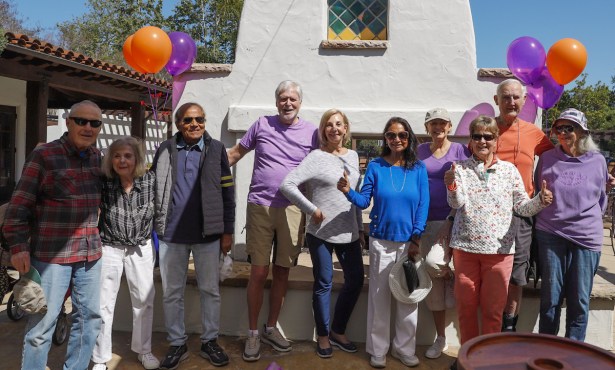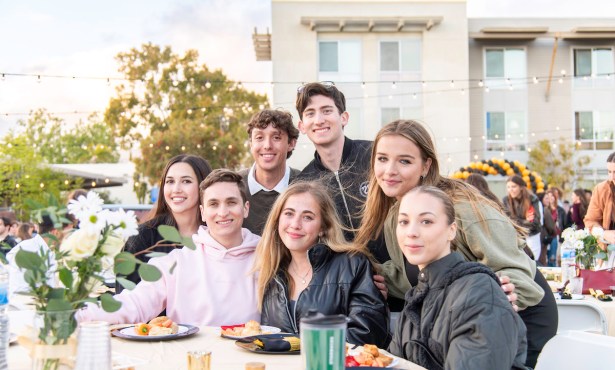Mobile Advocacy in Africa
Apps for Rural Poor
“There is no digital divide,” Elizabeth Huttinger boldly proclaimed, during a presentation titled “Mobile Advocacy in Africa.” The way she tells it, mobile technology has shattered barriers to entry into a digitally enhanced world.
Huttinger is CEO of the Manobi Development Foundation, a nonprofit group dedicated to identifying and fixing economic, environmental, and health problems through grass-roots campaigns. The Pasadena, California-based foundation specializes in empowering impoverished rural residents with cutting-edge technology.
In a January 26 presentation at the Fielding Graduate University in Santa Barbara, Huttinger outlined one of the most intriguing aspects of the group’s work: the development of “mobile-to-internet applications, apps, for rural poor farmers in Africa.” While cellphone apps might seem to be just another new craze in the U.S., they are allowing people in Third World countries to finally share in technology’s benefits.
The apps that Manobi utilizes are all open-source programs developed through discussion with Africans, in order to understand exactly what their needs are, said Huttinger. She said the most common problems for farmers have to do with monetary exchange and fair trade prices. After farmers harvests a crop, they must transport it to the buyer, she explained: While that might sound quite easy to do, rural farmers usually don’t have access to cars or even roads so they rely on a single grueling journey to the nearest town with a cart that is overloaded. Once they get to town, buyers lower the prices because they understand the need for the farmer to unload his crop and his inability to know what a fair price would be.
The Manobi Development Foundation recognized this problem and sought to correct it, using to the farmers’ advantage the rapid evolution in cellular technology and internet accessibility: Manobi created apps that portray the market price for the crops. “If you know what the market price is, because you can look it up, you can browse—and look out: You can say, “No, I want such-and-such a price.’”
Manobi focuses on “poor and extremely poor” people, with incomes of less than two dollars a day and one dollar a day respectively, and has seen many cases where a farmer can move from poor to middle class within a couple of years. “We’re definitely evening the playing field,” Huttinger proudly declared.
Considering that African farmers are, for the most part, lacking in formal education, it may be difficult to imagine that they could really utilize the technology being placed at their disposal. Huttinger countered this impression, saying that they “can use it very well even if they went through second grade 20 years ago. It’s very intuitive.”
The potential for sustainability and growth by way of this democratizing technology is even more exciting than the monetary gains already incurred. The populaces that Manobi focuses on are too poor to afford phones, so Huttinger and her colleague Daniel Annerose have established a method whereby African farmers “get the service for free and the phones for free,” said Huttinger. “Once they’re earning enough income that they’re not considered to be poor anymore, then we charge them a nominal fee for the service, so we can provide free service for another person. . . . It’s sustainable development.”
Huttinger and Annerose haven’t stopped with enabling farmers to escape poverty by using mobile technology. The Manobi Development Foundation has also teamed up with UCSB to help reduce schistosomiasis, a parasitic ailment that is responsible for killing 280,000 people a year, but receives nowhere near the attention it deserves. Huttinger and Annerose are also helping governments establish better methods of land and birth registration, which will allow citizens to sign notarized papers and get passports, among other things. As it stands, Huttinger said, 55 percent of African residents are unregistered, and too easily regarded as non-persons.



